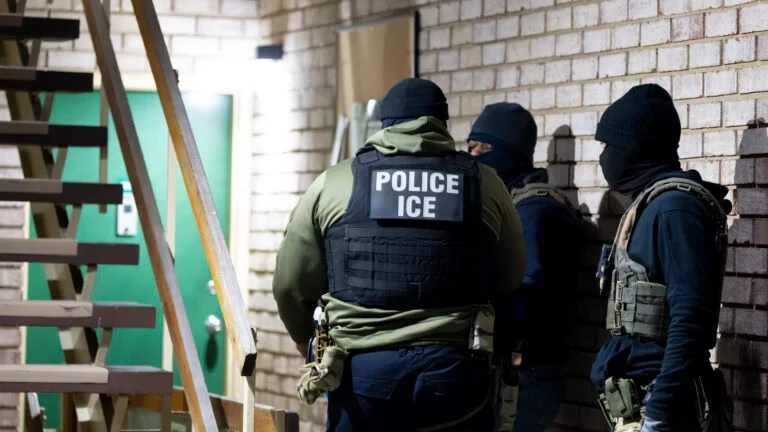A controversial strategy implemented by U.S. immigration authorities has triggered legal debates nationwide. ICE (Immigration and Customs Enforcement) agents have been sending administrative subpoenas to landlords, seeking private information about their tenants—particularly those believed to be undocumented or with criminal backgrounds.
Legal professionals specializing in real estate law confirm that these requests demand rental agreements, application files, identification documents, mailing addresses, and the names of all individuals residing in the property.
Atlanta-based attorney Eric Teusink has verified this practice. “They’re asking for full tenant files, sometimes with very personal details like family status or employment history,” he told the Associated Press.
The Independent reports that the subpoenas examined by AP do not bear a judge’s signature, but instead carry signatures from USCIS’s anti-fraud unit—the department handling citizenship and immigration matters. This development may indicate a new direction in the Trump administration’s strategy to identify and remove undocumented individuals.
The lack of judicial authorization has generated significant concern. Legal scholars suggest that property owners have no legal obligation to respond. Professor Stacy Seicshnaydre, a housing law specialist at Tulane University, cautioned: “These subpoenas, if not validated by a judge, could place landlords in violation of the Fair Housing Act, which prohibits discrimination based on national origin, among other things.” She further highlighted the danger of “overcompliance”: “Many landlords may feel pressured to comply, believing they must respond—even when the request lacks real legal standing,” The Independent reported.
The ambiguous legal situation has created unease, particularly among managers of large residential properties. “We regularly receive judicial subpoenas in criminal cases—but those are always court-approved. This is different,” Teusink informed AP.
Attorney Jordana Roubicek Greenman in Boston revealed that one of her clients received a voicemail from ICE requesting tenant information, and she counseled against responding.
In the Los Angeles area, property manager Anthony Luna, who oversees approximately 1,000 units, noted increasing worry among tenants who have learned about these subpoenas. “If these agents are targeting criminals, why not go through the courts? Why are they digging through landlord records?” he questioned.
When approached by the Associated Press, Tricia McLaughlin, spokesperson for the Department of Homeland Security, supported ICE’s procedures but wouldn’t reveal the extent of the agency’s communication with landlords. She stressed that ICE’s administrative subpoenas are not optional.
“It is incorrect to suggest these subpoenas can simply be ignored,” she said. “ICE has full authority to obtain records or testimony through administrative subpoenas. Failure to comply may lead to serious legal consequences.”
While ICE’s use of non-judicial subpoenas is not new, Professor Lindsay Nash of Cardozo School of Law in New York told AP that their use has increased significantly since Donald Trump’s first term. What’s different now, she explained, is the target: whereas such subpoenas previously focused on law enforcement agencies, they are now being directed specifically at landlords.
Nash confirmed that ICE possesses legal authority to enforce these subpoenas in federal court—though this requires judicial involvement, providing landlords an opportunity to contest them. However, many property owners comply without notifying their tenants, concerned about potential legal consequences.
“These documents look official, use threatening legal language, and many people comply without realizing they can challenge them,” Nash said. “Many of them are overly broad or even abusive in their demands.”
This systematic approach of pressuring landlords to disclose personal tenant information appears to be a new tool in the Trump administration’s broader immigration enforcement strategy. However, it raises significant constitutional, legal, and ethical concerns—both for property owners caught in this legal uncertainty and for immigrant families who often remain uninformed and vulnerable.
Sources: Associated Press, via The Independent







